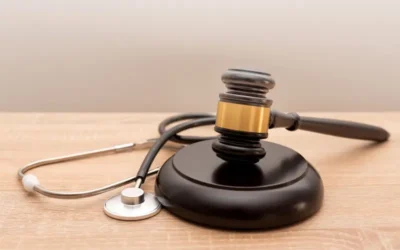Medical record analysis and review can be quite challenging even for the most experienced attorney. Cases that involve a medical component such as personal injury, workers’ compensation, product liability or medical malpractice have an extra dimension of complexity. Many attorneys find a medical review service highly supportive and use the same to make the most of their medical discovery documents. A complete medical chart would include an initial History & Physical, Orders, Physician Progress Notes, Nursing Notes, Lab data, Radiology Reports, Operative Notes, Operative Records/Consent Forms, Pathology, and Discharge Summary.
To avoid missing critical information and to ensure a successful outcome for the case, it is vital to establish a reliable process for reviewing the medical records. As any seasoned medical review company would agree, creating a list of the documents needed is the best way to make sure that nothing is missed. To create a useful list and to identify missing information if any, you need to know what records to request and what to expect in a medical chart.
When requesting and organizing the medical records, you should have a clear understanding of the plaintiff’s complaints as regards malpractice or injury and the plaintiff’s view of what went wrong. Why is organizing, indexing and Bates stamping the medical records important before sending it to experts for review?
- The medical records collected may have to be referred to over a long period of time, maybe 2 – 3 years and if they are not maintained well it will delay every step of the litigation.
- When the records are organized in a logical sequence, it is easier and more comfortable for the medical review experts, and will speed up their analysis.
- When the medical record review is quick, it will be more cost-effective for legal professionals.
- Properly indexed and organized records are valuable when responding to motions, preparing questions for depositions and during discovery.
In any medical-legal case, after the initial medical record review, the need to collect additional documents may arise – documents that may not be included along with the medical records. These documents include the following and should be separately requested.
- Billing records: These are needed to understand what services were actually provided as well as to identify any negligence on the part of the provider.
- Autopsy records: Useful in cases involving unexpected or suspicious deaths.
- Emergency medical services transport records
- Emergency room logs
- Drugstore pharmacy records: Useful where a history of drug use is critical to the case as in adverse drug reactions or a matter of product liability.
- Fetal monitor strips, which are part of the mother’s medical record, may prove important in birth injury cases.
- Operating room logs, which may contain important information regarding the plaintiff.
- Laboratory logs become important when the medical chart does not document tests one may expect to have in the medical records based on the plaintiff’s health condition.
- Photographs and DVDs of tests and surgeries that may have been recorded / documented photographically or electronically.
Once the medical records are organized, the important facts have to be extracted into a chronology and summary to help tell the story of the patient. Chronologies and medical case summaries are indispensable for attorneys preparing a case for trial.
- Logically organized facts enable clear thinking.
- A good chronology helps ensure complete discovery. It gives a clear view of the facts that are disputed, and also provides an idea regarding the facts that may need more sources that are acceptable in court.
- It helps in easy communication among all members of the trial team.
- It assists in preparing for depositions, pretrial motions, opposing motions for summary judgment, settlement conferences and also during trial.
- A well-developed medical case chronology would clearly highlight all the key points and concerns as well as any defenses, helping the attorney to put together an efficient case strategy.
Often, expertise in the field of medicine or nursing on the part of the reviewer can prove advantageous during the medical record review process. The knowhow and practical experience of a medical or nursing professional who is a part of the medical review service team will help when there is the need to evaluate symptoms, treatment and outcomes to ensure they meet the standard of care. Only a professional can understand these aspects and their significance with regard to all body systems. Professionals in the field will be able to point out what constitutes below the standard of care, what would be considered “expected possible complications,” and so on. Organized and complete medical records will help save time spent on the review and costs involved, while providing attorneys with a clear understanding of the cases they are handling.




